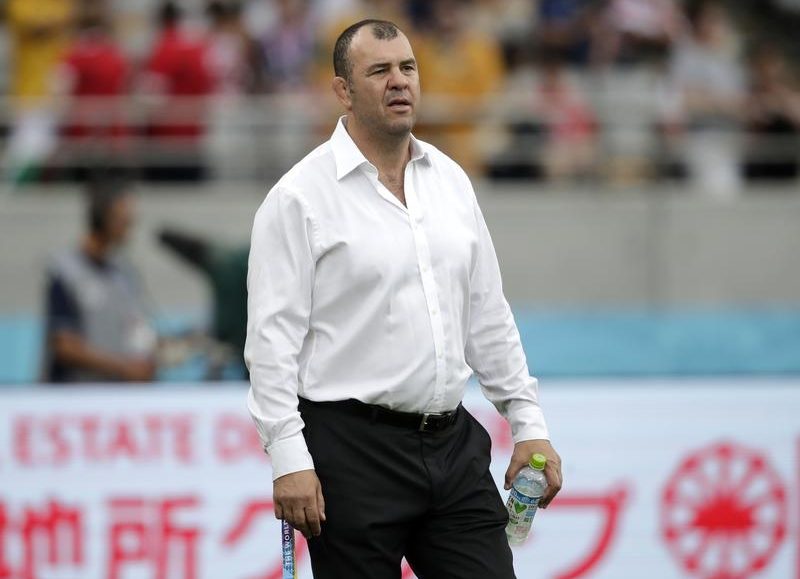
Michael Cheika has defended his 50 per cent winning record as Wallabies coach but conceded he never got them playing at a consistently high level during his five years in charge.
The outspoken Cheika will finish up as one of the least successful Australian coaches of the modern era after announcing he won’t seek an extension to his five years in charge after the Wallabies’ World Cup failure in Japan.
The 40-16 loss to England in the quarter-finals was the country’s heaviest defeat in any World Cup match and leaves Cheika with 34 wins from his 68 in charge since taking the reins in October 2014.
He matched the 50 per cent record of predecessor Ewen McKenzie, who had a much shorter term, but otherwise none of the past nine Wallabies coaches dating back to 1982 have had such a modest record.
It was downplayed by Chieka to reporters, who quizzed him on his legacy after he’d announced he’d quit on Sunday.
“I can’t be 100 per cent sure of the numbers but I think I’m half and half for wins, which isn’t too dissimilar to the average across the board,” he said.
“We weren’t able to deliver consistency over the whole time, I don’t think.
“We had some great moments and I think that comes with the challenges we’ve got around losing players overseas, young players coming through etc.
“But at the end of the day, all that stuff’s pretty irrelevant. It’s about doing your best in the situation that we have.”
Australia won seven straight games in 2015, including their charge to that year’s World Cup final.
After that, they never won more than four on the trot and silverware eluded Cheika at Rugby Championship and Bledisloe Cup level.
Wallabies Kurtley Beale, Samu Kerevi and James O’Connor all praised him in the immediate wake of the England loss.
Former Wallabies such as Quade Cooper and Curtis Rona were less impressed on social media.
Veteran five-eighth Cooper, himself a divisive figure in the Australian game, tweeted of Cheika’s departure: “If he actually cared about Aus rugby he would have done it a while ago.”
Cheika said his team simply wasn’t good enough in Japan, something for which he must carry the can as much as anyone.
“There were fine margins in many of the games,” he said.
“Our best wasn’t good enough on this occasion, in this tournament.”




